Doctor's Best - Science Based Nutrition
Best Vitamin D
Vitamin D3 (cholecalciferol) is a nutrient that is critical to many bodily functions and is also known as the "sunshine vitamin". The body makes vitamin D when it is exposed to the sunlight. Vitamin D3 is beneficial for supporting bone health, immune wellness, cardio- vascular function, and cellular metabolism, among others. Mounting research is highlighting the ever-increasing benefits of optimal vitamin D3 levels. Vitamin D3 is known to interact with over 200 different genes and thus plays a crucial regulatory role as a metabolic activator for a multitude of metabolic processes.
By many estimates, at least half of the people in the U.S. and other countries have blood levels of vitamin D considered deficient or insufficient. It's not suprising that vitamin D is one of the best-selling supplements, not to mention that more and more foods are being fortified with it.
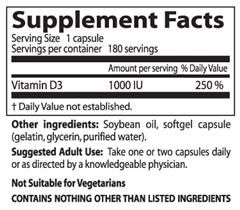
By
-
Flag
Comments? Question?
Updated Dec. 09, 2015,
about 10 years ago
UPC: 753950002098
Distributed or manufactured from Doctor's Best. See more Doctor's Best products.
Compare to these:
Questions and answers:
Question: How much Vitamin D should I take. I am a 40 year old male and live in Alaska where day light is limited in the winter.
- A: Growing evidence shows that vitamin D plays a crucial role in disease prevention and optimal health. There are thousands of genes in the body and vitamin D effects nearly all of them including vitamin D receptors. Dr. Robert Heaney MD one of the premier vitamin D researchers in the world concludes that the Recommended Dietary Allowance (RDA) should be 10 times higher than Institute of Medicine recommends (600IU daily). Vitamin D is produced when ultraviolet rays of sunlight strike the skin and trigger vitamin D synthesis. Limited sunlight exposure can dramatically change the levels of vitamin D our body makes. 1,000-2,500 IU of Vitamin D per day are commonly used for those who may not be gaining vitamin D from the sunlight exposure. There is an abundant amount of controversy over how much vitamin D do we really need. Ongoing research and studies continue to conclude, how really important this "sunshine" vitamin is in preventing disease. The best indicator of your vitamin D status is a blood test called 25-hydroxy, vitamin D, which reflects the amount of vitamin D you receive from sunlight in the skin and how much you consume from nutrition and supplements.








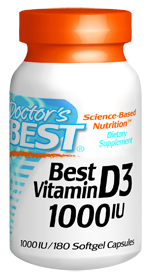
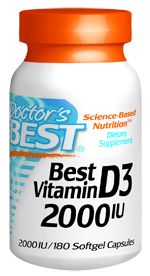
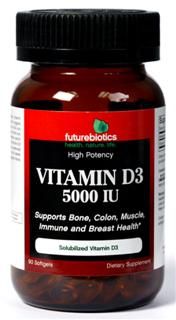
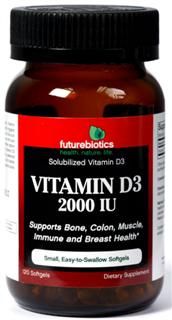


 Publish your shopping cart to facebook and get free shipping in U.S.
Publish your shopping cart to facebook and get free shipping in U.S.